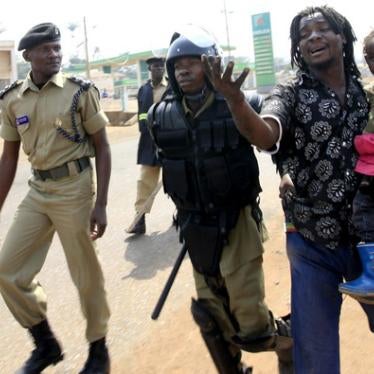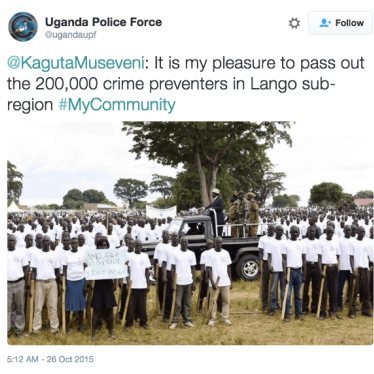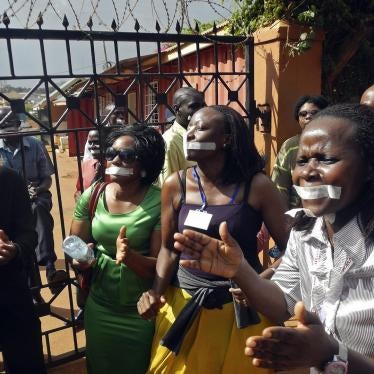Serious human rights concerns in the lead-up to Uganda's March 12 presidential elections shed doubt on whether the election will be free and fair, Human Rights Watch said in a report released today.
Five candidates are competing against President Museveni for the presidency, but under Uganda's "no-party" or "movement" system, they do not have a party base to help organize or campaign for public support. "The Museveni government is trying to win this election by bullying the opposition," said Binaifer Nowrojee, counsel for Human Rights Watch's Africa division. "The electoral playing field is definitely not level. Since the start of the campaign in January, the opposition have been threatened by violence, arrests, and intimidation, from soldiers and police."
In recent weeks, Human Rights Watch has found extensive Ugandan government efforts to manipulate the elections. The report, Uganda: Not a Level Playing Field, documents arbitrary arrests, attacks, and intimidation of the political opposition and its supporters, and campaign agents. To a lesser extent, intimidation and assault have also been directed at Museveni supporters or perceived Museveni supporters. Supporters of Kizza Besigye in particular have committed a number of acts of harassment and violence. The incidents have led to an atmosphere of tension and fear.
"It is more clear than ever that Museveni's movement system is in fact a means to perpetuate his power, through a system that does not allow free and fair democratic elections," said Nowrojee.
While all the opposition candidates have reported cases of government-sponsored violence, the largest number of incidents are directed towards supporters of Kizza Besigye, who has emerged as the strongest challenger to incumbent President Yoweri Museveni. The government has not taken steps to investigate or stop the violence and harassment suffered by him or other opposition candidates.
The harassment of journalists and editors, self-censorship, and inequality in media access has intensified as the date for the polls nears. In addition, the electoral process has been marked by irregularities in the registration of voters, concerns over the tendering process for the ballot papers, and failures on the part of the Electoral Commission to act on these irregularities.







